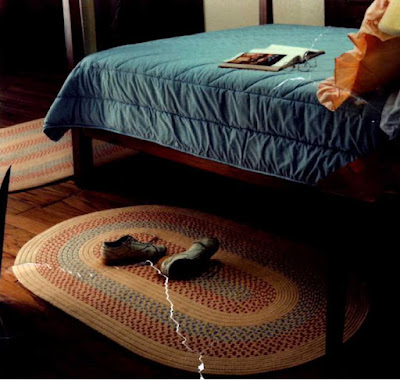 |
| cmi braided rug from 1980s cmi braided rug 2011 Montego collection |
Evolution man.
Let's dive right in. I mean evolution is what it's all about, right?
People evolve, trends evolve, places and products evolve.Humans evolve over time through various life experiences, lessons learned, choices made.
Economic climates, technology, war, to name a few, are factors that contribute to the evolution of trends, places and products.
Essentially, evolution is something transforming into another version of itself. The initial thing or person never completely left behind, but as an integral piece in what develops.
The braided rug is known for its deep roots in American tradition and history. First introduced back in the late 1700s-early 1800s as a way to keep floors warm and make use of left-over cloth, it evolved into a tradition for women of the time. As a way to pass the long It’s why many people today associate "braided rug" with something from grandma's house.
And then . . . evolution.
Braided rugs aren't all what they used to be.
They too have evolved.
Just as the foundation of a braided rug is still basic in it's form (3 strands to make a single braid), the process has evolved over time. From the Industrial Revolution and the introduction of machines, to new techniques, material and color, the braided rug has progressed to something far beyond "grandma's braid." We maintain the tradition of manufacturing in the
But what we're creating may surprise you.
Hand-made braids will always maintain their vintage beauty and tradition of craft, but let us take you beyond that.
At cmi, we say that braiding is simply a construction, not a style.
Come see why and be a part of the evolution.
 |
Winding machines in cmi factory 1980s |
 |
| cmi's winding department 2011 |

No comments:
Post a Comment